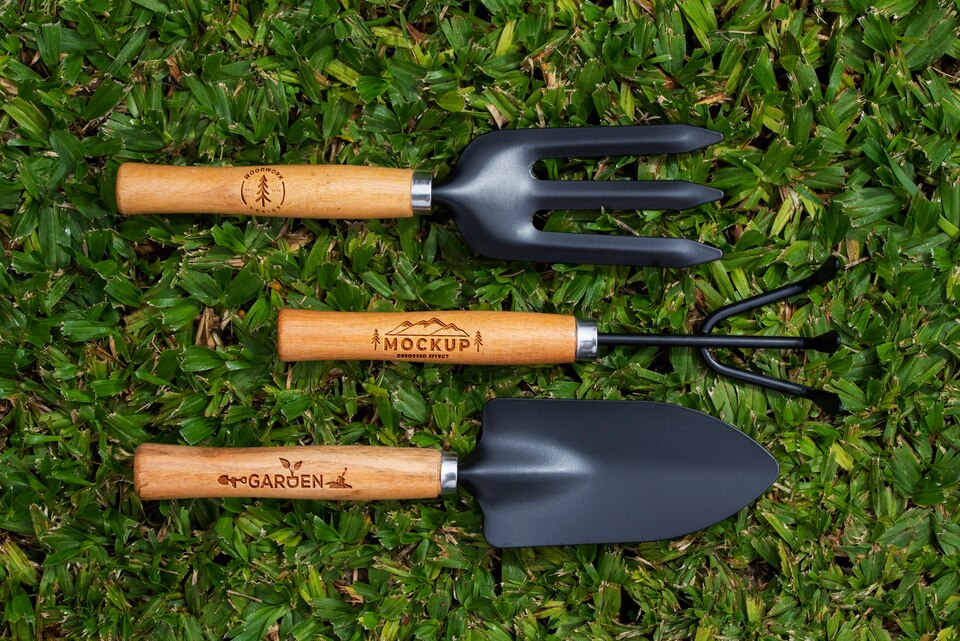Embarking on a landscaping project can be both exciting and overwhelming. The key to success lies in selecting the right landscape tools and supplies tailored to your specific needs. Whether you’re planning to rejuvenate your garden or undertake a large-scale landscaping renovation, having the appropriate tools can make all the difference. Our professionals emphasize the importance of understanding your project requirements and choosing tools that will maximize efficiency and effectiveness.
Understanding Your Project Needs
Determining Project Scope and Goals
Before starting any landscaping project, you must determine the scope and goals. Are you looking to create a new garden, install a lawn, or enhance an existing landscape? Identifying what you aim to achieve helps you plan accordingly. Define your objectives clearly. This involves deciding on the desired look, functionality, and maintenance requirements for your landscape. Knowing the project scope ensures that you choose the right tools and supplies, saving time and effort in the long run.
Identifying Essential Landscape Materials
Once the scope and goals are defined, identifying the necessary landscape materials is the next step. Basic materials you might need include topsoil, mulch, compost, and fertilizers. Topsoil provides the foundation for plant growth, while mulch helps retain moisture and control weeds. Compost improves soil quality by adding organic matter, and fertilizers boost nutrient content. Our professionals recommend making a list of required materials based on your project requirements. This list will guide your purchases and ensure you have everything needed for a successful project.
Consulting with Our Professionals
Consulting with our professionals can provide valuable insights and recommendations tailored to your specific project. Our technicians have extensive knowledge of landscape materials and tools, helping you select the most suitable options. They can advise you on the best types of topsoil, the right kind of mulch, and the essential tools for your project. Professional consultation ensures that you make informed decisions, leading to a more efficient and successful landscaping venture.
Essential Landscape Tools for Various Projects
Basic Tools: Shovels, Rakes, and Pruners
Basic landscape tools are essential for almost any project. Shovels are used for digging, transplanting plants, and moving soil or mulch. Rakes help in gathering leaves, spreading mulch, and leveling soil. Pruners are necessary for trimming shrubs, bushes, and small trees. These tools are versatile and indispensable. Our professionals recommend investing in high-quality basic tools to ensure durability and efficiency. A well-equipped tool shed with these basics sets a strong foundation for most landscaping tasks.
Advanced Equipment: Tillers, Aerators, and Mowers
For more extensive projects, advanced equipment like tillers, aerators, and mowers come into play. Tillers are used to break up and cultivate soil, making it easier to plant and incorporate soil amendments. Aerators create small holes in the soil, improving air and water penetration, which is crucial for healthy root growth. Lawn mowers keep grass at the desired height, promoting even growth and a neat appearance. Our technicians stress the importance of using the right advanced equipment based on your project size and needs. These tools can save time and increase the efficiency of your work.
Specialty Tools: Irrigation Equipment and Soil Test Kits
Specialty tools provide precision and aid in specific tasks. Irrigation equipment ensures that your lawn and garden receive adequate water without wastage. Options range from basic hose systems to advanced drip and sprinkler systems. Soil test kits are invaluable for understanding soil composition and pH levels. These tests guide the application of fertilizers and soil conditioners to optimize plant growth. Our professionals recommend incorporating these specialty tools to enhance the efficiency and outcome of your landscaping project.
Choosing the Right Topsoil and Supplies
Types of Topsoil for Different Projects
Topsoil is one of the most important landscape materials. There are various types of topsoil, each suited for different purposes. For flowerbeds and gardens, loamy topsoil rich in organic matter is ideal. This type of soil drains well while retaining enough moisture for plant roots. For lawns, sandy loam topsoil is preferable because it supports grass growth with good drainage. When choosing topsoil, our professionals recommend considering the specific needs of your project to ensure optimal plant health and growth.
Selecting the Best Mulch and Fertilizers
Mulch and fertilizers are crucial landscape supplies that play a vital role in plant health. Mulch helps retain moisture, suppress weeds, and regulate soil temperature. Options include organic mulch like wood chips and compost, which also add nutrients to the soil. Fertilizers provide essential nutrients that might be lacking in the soil. There are different types of fertilizers, such as slow-release and quick-release formulas. Slow-release fertilizers provide a steady supply of nutrients, while quick-release fertilizers offer immediate nutrient availability. Our technicians advise choosing the right type based on plant needs and soil conditions.
Incorporating Soil Conditioners and Additives
Soil conditioners and additives are specialized landscape supplies used to improve soil structure and fertility. Common soil conditioners include compost, peat moss, and lime. Compost enriches soil with organic matter, improving its texture and nutrient content. Peat moss helps retain moisture in sandy soils and improves drainage in clay soils. Lime adjusts the pH level of acidic soils, making them more suitable for plant growth. Our professionals recommend incorporating these conditioners to enhance soil quality, ensuring a healthy and vibrant landscape.
Tips from Our Professionals
Proper Tool Maintenance and Storage
Maintaining your landscape tools ensures their longevity and effectiveness. Regularly clean tools to prevent rust and decay. Sharpen blades on pruners, shovels, and mowers to ensure precise cutting and digging. Store tools in a dry place to protect them from moisture and pests. Our professionals suggest creating a maintenance schedule to routinely inspect and care for your equipment. Proper maintenance not only extends the life of your tools but also makes your landscaping tasks easier and more efficient.
Safety Tips for Using Landscape Tools
Using landscape tools safely is essential to prevent injuries. Always wear protective gear, such as gloves and safety glasses, when handling tools. Follow the manufacturer’s instructions for each tool, and make sure you know how to operate it correctly. Keep sharp tools away from children and pets. Be mindful of your surroundings, especially when using power tools. Our technicians emphasize the importance of proper posture and technique to avoid strain and injury. By following these safety tips, you can ensure a safer and more productive landscaping experience.
Common Mistakes and How to Avoid Them
There are several common mistakes that can hinder the success of your landscaping project. Overwatering or underwatering plants can lead to poor growth or plant death. Using the wrong type of topsoil or mulch can negatively affect soil quality. Not maintaining tools regularly can result in inefficient work and damaged equipment. Our professionals advise against these common errors by stressing the importance of proper planning and regular maintenance. Understanding and avoiding these pitfalls will help you achieve better results in your landscaping projects.
Conclusion
Choosing the right landscape tools and supplies is essential for the success of your landscaping projects. Determining your project needs, selecting appropriate materials, and consulting with our professionals pave the way for effective planning. Equipping yourself with the right tools, from basic shovels and rakes to advanced equipment and specialty tools, ensures that each task is performed efficiently.
Careful selection of topsoil, mulch, and fertilizers enhances soil quality and promotes healthy plant growth. Regular tool maintenance and adherence to safety guidelines prevent common mistakes and foster a productive landscaping environment.
For expert advice and high-quality landscape tools in Everett, WA, visit Northwest Landscape Supply. Our professionals are here to guide you through every step of your project. Let’s work together to bring your landscaping vision to life.





